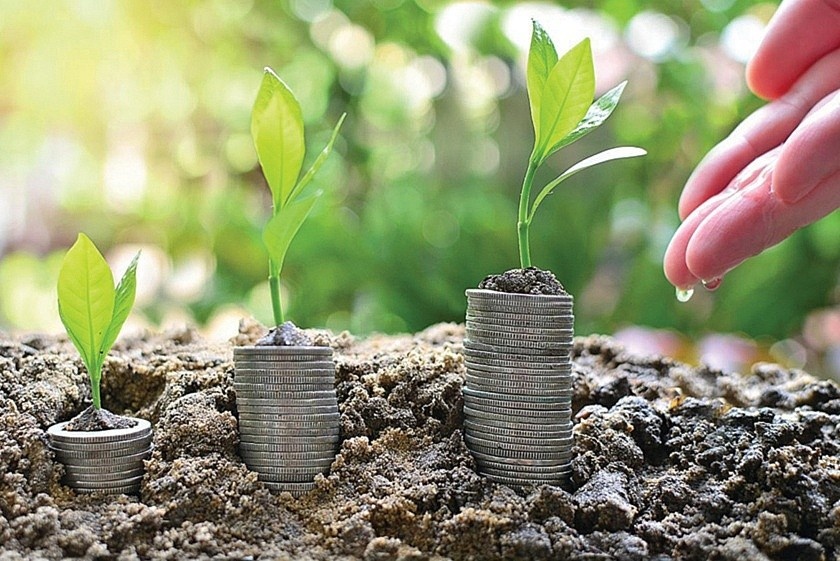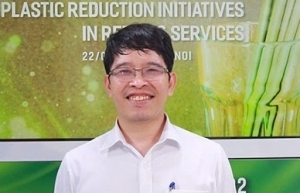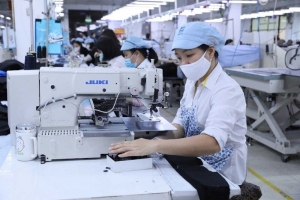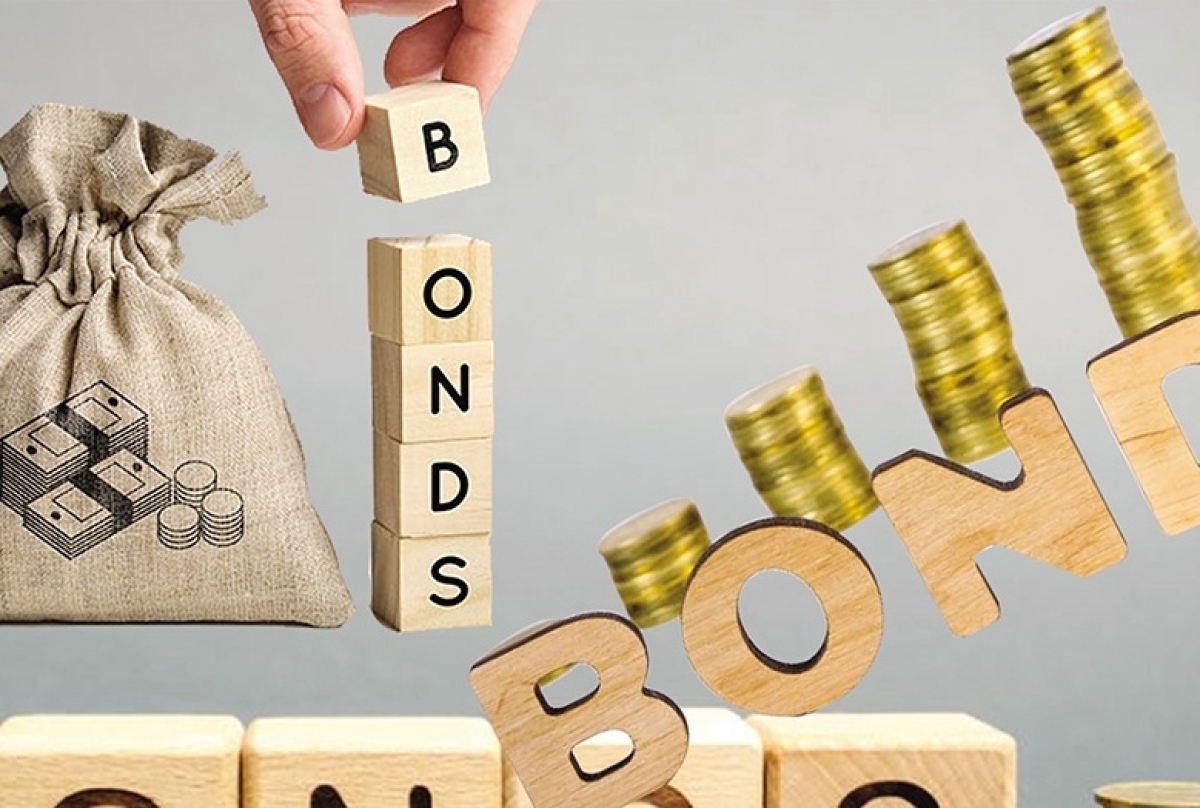INTERNATIONAL INVESTMENT
AND PORTAL
According to the World Bank, the annual average investment required for Vietnam’s climate adaptation in agriculture, transport infrastructure, and cooling solutions during 2025-2050 is estimated at $233 billion, equivalent to 0.75 per cent of GDP.

The highest demand pertains to addressing heat stress, which affects human health and productivity, necessitating an additional investment of up to $172.7 billion by 2050, averaging 0.5 per cent of GDP per year.
At a high-level roundtable held in Hanoi on May 21, the State Bank of Vietnam’s Deputy Governor Dao Minh Tu emphasised that Vietnam must strategically channel both state budget funds and mobilised international financing towards green credit initiatives. Such a targeted approach would meet the capital requirements of the country’s economic transformation.
"In the face of increasingly evident impacts of climate change and environmental degradation on economic development and social stability, green growth is no longer a policy option; it has become an urgent necessity for nations worldwide, especially developing countries like Vietnam," said Tu.
"Therefore, the shift to a green growth model, balancing economic development with environmental protection and efficient resource use, is inevitable," he added.
As a result, the banking sector has experienced rapid growth in green credit, both in scale and speed.
According to Pham Thi Thanh Tung, deputy director general of Credit Department for Economic Sectors at the SBV, as of March 31, 58 credit institutions reported green credit balances exceeding $28.1 billion, marking a 3.57 per cent increase compared to the end of 2024 and accounting for 4.3 per cent of the total outstanding loans in the economy.
The majority of this credit is concentrated in renewable energy and clean energy, accounting for more than 37 per cent, and green agriculture, making up over 29 per cent.
The average annual growth rate of green credit from 2017 to 2024 was over 21.2 per cent, surpassing the overall credit growth rate of the economy.
Regarding environmental and social risk assessments in credit activities, as of March 31, 57 credit institutions had assessed environmental and social risks for loans totalling VND3.62 quadrillion (approximately $145 billion), marking a nearly 1 per cent increase compared to the end of 2024, and up more than 15 times since the implementation began in 2017.
However, recent developments in the global financial market have raised concerns about the future of green credit.
Leaders of Vietnamese banks expressed apprehension regarding the withdrawal of six major US banks from the NetZero Banking Alliance, including J.P. Morgan, Morgan Stanley, Bank of America, Citigroup, Goldman Sachs, and Wells Fargo, questioning the potential impact on green credit in the banking sector.
Mike Suffield, director of Policy and Research at ACCA Global, acknowledged the global shifts in perspectives and actions concerning environmental, social, and governance (ESG) factors.
"These changes are not challenges to ESG or sustainable development globally but rather evidence of the challenges that countries, governments, organisations, and businesses must address to pursue long-term sustainable development, recognise risks, respond accordingly, and seize opportunities," said Suffield.
He likened the situation to encountering a headwind in the global context but asserted that the commitment to sustainability remains steadfast and continues to be a central agenda item.
To further promote green growth, Tran Phuong, deputy general director of BIDV, proposed that the government and relevant ministries establish specific regulations for green classification, national green project certification, and particularly develop regulations on social and climate risk management.
Additionally, he suggested the early issuance of policies to encourage green growth.
"It is necessary that the SBV consider policies to support green projects, such as allowing green project capital to be deducted from the short-term lending ratio for medium- and long-term loans, considering reductions in corporate income tax corresponding to the level of green credit and exploring interest rate support packages for investments in green projects," said Phuong
From 2019 to 2024, BIDV experienced significant growth in green credit. By the end of 2024, BIDV had provided green credit to 1,600 customers with nearly 2,000 projects, totalling a green credit balance of $3.24 billion.
The bank has also issued green bonds worth $100 million to finance green projects, reinforcing its commitment to green transformation.
Doan Ngoc Luu, deputy general director of Agribank, suggested that ministries and sectors actively connect and support the banking sector in accessing more financial funds and support packages for green credit from international organisations.
As of the first quarter of 2025, Agribank continued to lead in the number of customers receiving green credit, with over 41,600 customers and a total outstanding balance of nearly $1.2 billion, primarily in renewable energy, clean energy, sustainable forestry, and green agriculture sectors.
The World Bank's Country Climate and Development Report for Vietnam indicates that climate change could result in losses of up to 12 per cent to 14.5 per cent of the country’s GDP annually by 2050 without proper adaptation and mitigation measures. This could push up to one million people into extreme poverty by 2030.
The report underscores the urgency of implementing adaptation measures to protect assets, infrastructure, and people, highlighting the need for substantial investments to build climate resilience and achieve net-zero greenhouse gas emissions by 2050.
 Attaining climate justice with climate finance goals
Attaining climate justice with climate finance goals
The significant global changes are leading to three planetary crises – climate change, biodiversity loss, and environmental pollution. Therefore, climate finance, when invested sufficiently and appropriately, is the pathway to climate justice.
 Garment giants post robust Q1 profits despite global trade headwinds
Garment giants post robust Q1 profits despite global trade headwinds
Vietnamese textile apparel producers saw impressive profit growth in the first quarter (Q1) of 2025, signaling a strong recovery in the sector.
 Banks remain decisive to push against headwinds
Banks remain decisive to push against headwinds
Credit growth is becoming increasingly difficult to sustain amid mounting external pressures. Nguyen Quoc Hung, vice chairman and general secretary of the Vietnam Banks Association, talked with VIR’s Vy Vy how banks must go beyond restructuring growth models.



















